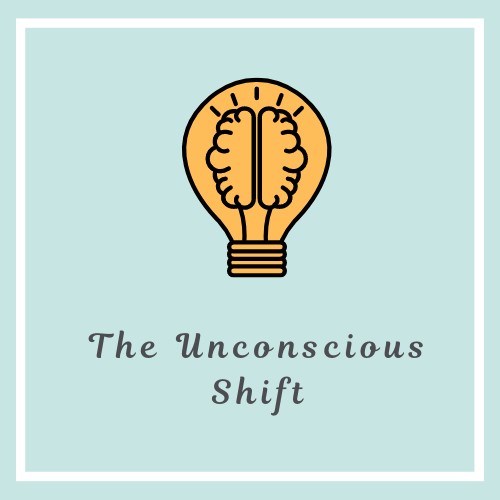Alright – so today we’ve got the honor of introducing you to Jackie Darby. We think you’ll enjoy our conversation, we’ve shared it below.
Hi Jackie, so great to have you on the platform. There’s so much we want to ask you, but let’s start with the topic of self-care. Do you do anything for self-care and if so, do you think it’s had a meaningful impact on your effectiveness?
As a mental health provider, it is important for me to have a solid self-care routine. On a weekly basis, I join others and help them to unpack their struggles as they move towards health. That joining can make it easy for me to take those stories with me at the end of the day and if I do not have a way to decompress I can become overwhelmed. That can be problematic because if I am overwhelmed, I cannot show up for my clients with an objective mind. Instead, I would come to the therapy space with a vision that is cloudy with my own problems and needs . That is when the therapy space becomes unsafe for my clients because next thing I know the therapy space turns from being a space for them to become a space for me. The can lead to role reversal where I am the client and the client is my therapist. That is not only unhelpful to the client but it is also unethical behavior on my end. To prevent that, I need to make sure that I have actually engage in my self-care plan because I need to provide a safe and ethical care to my clients.
My self-care routine consist of making sure I do things that address five needs; physical, emotional, mental, relational and spiritual. Physical needs are the ones that attend to that address my biological body. Emotional needs address the ability for me to feel and express my emotions. The mental need are things that allow for me to see the world in a balance way. The relational need is how I connect to others, particularly people who I have close relationship too. Lastly, the spiritual need is how I connect to something that is bigger than myself. I have found that in order for me to be my most healthy self I need to do something that attends to all five needs. If I just hyperfocus on one need, then it becomes an obligation rather than an outlet to rest.
Some practical things that I do to address those five needs; are going to bed a set bed time, engaging in some type of physical movement daily (usually it is a mindful walk at the local indoor track), sharing memes to my friends, having deep political discussions with coworkers or even just playing games on my phone. Engaging in my self-care plan helps me to in a sense empty my own cup, so that I can come back the next day with a greater capacity to help others.
Let’s take a small detour – maybe you can share a bit about yourself before we dive back into some of the other questions we had for you?
I am a Licensed Clinical Psychologist. I help organizations and people create spaces where health and wellness can be supported. That work can look like individual therapy or providing workshops for organizations to help dismantle oppressive systems. My goal is to help people to be informed on how they are moving in their life. I help people find their “why” and help them tap into their power to change.
What I am most excited about is the self-care planner that I created to t help people prioritize their self-care. I noticed that people would often put their self-care as an afterthought. For example, they would “pencil in” a self-care activity once everything else is done. Making self-care an afterthought can lead to people finding a reason to not engage in the activity. I created “A Year of Self-Care: a Self-Care Planner to Help you Prioritize You” as a way to break people out of that habit. The planner starts the week by asking the reader to write down their self-care activity first, then they can go plan the rest of their day. It also has quarterly self-care reward cards and handouts to help the reader to think about their motivation for engaging in self-care. It is a nice tool for people to start to create their own wellness plan.
If you had to pick three qualities that are most important to develop, which three would you say matter most?
The three qualities/skills that were most impactful in my journey as a psychologist is the ability to ask questions, the ability set boundaries, and learning how to hear constructive feedback. I think people who are interest in working in the mental health field need to be able to ask questions (even if you think you already know the answer). Being curious will allow you to connect to people in a deeper way. The ability to set boundaries is a skill that people need in life, but specifically mental health providers. The instant access to things have give people the expectations that they have a right to have access to people instantly as well. Therapist need to know when they can take the therapist hat off and just be themselves. If not, they will get burnt-out which can lead to people leaving the field. Lastly, the skill of being able to hear constructive feedback (and knowing when a feedback is constructive) is a great tool because it will prevent from people to get stagnant The mental health field does not grow if people stay complacent.
How can folks who want to work with you connect?
The type of people/organizations that I would love to collaborate with are people that want to shake up the status quo. They want to take a deep look at the systems that make people unwell and to try to change it. They want to move past the performative nature of “self-care” and actually create a community of care that supports people to take charge of their health. Also, like to work with people who can have fun and be creative. Talking about mental health does not have to be dull. Joy is a part of mental health and being able to express it in a safe way is how people get well.
Contact Info:
- Website: www.drjdarby.com
- Instagram: https://www.instagram.com/theunconsciousshift/
- Linkedin: https://www.linkedin.com/in/jacquelin-darby/




Image Credits
First image: Danielle Shields Third image: Josh DeSilva




